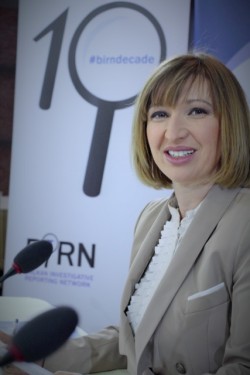Plenary panel 4: Will Civil Society Save Democratic Values?
Discussion Points:
- In the situation of crisis – political, humanitarian, etc. – who is the actor who takes the brunt of responsibility for maintaining the tradition of democratic values – the state or the civil society?
- Can civil society re-energize citizens’ trust in democracy and effectively defend the values in the light of protracted crisis, xenophobia and isolationism?
- In the era of ‘rebellion against elites’ is civil society seen as equally elitist and distant or as ‘one of us’ ?
- In times of austerity measures and changing priorities of the donors, how can we ensure that civil society maintains its operability?
- In what way can CSOs act as a control mechanism of those in power, if the civil society relies more and more on these same sources of power?
- When the institutions fail their citizens, how can we bolster the capability of the civil society to act and influence political processes?
Background
During the 2015 European refugee and migrant crisis the civil society acted as the most agile actor ready to take the burden of the crisis. The actions of the civil society resulted in pushing the issue of migration to the global spotlight. Thousands of volunteers across the Europe worked together in providing humanitarian assistance to the refugees, and proved capable of coordinating and executing complex tasks in the situation in which the states failed to respond adequately. The migration crisis has pointed out the issue of relations between the civil society and the state institutions in Europe today, particularly in regards to sharing responsibility for maintaining democratic values.
Another issue reflecting the problematic relationship between the state and the civil society in the times of global disorder is the question of financing of the civil society activities. With austerity measures in full effect, the civil society has found itself in a position of losing financial support, both locally and internationally. The priorities of not only state institutions but also the international donors are changing rapidly in the current economic climate, giving little or no time for civil society to adapt. The strategic focus of donors shifted away from the topic of enlargement and democratisation of the Western Balkans towards more urgent and troublesome issues, such as dealing with the effects of Ukrainian crisis and the refugee and migration crisis. In such circumstances, the financial survival of many CSOs is questioned, and their dependence on certain financial sources, inter alia state actors, narrowed down their role of controlling those in power.
With the rise of grassroots movements across Europe – from Greece, through the Balkan states such as Macedonia and Serbia, to the UK – their demands are usually put aside in the power games of important state actors. However, it became obvious that political corruption combined with neo-liberal economic policies keep provoking popular unrest which cannot be ignored. The question that arises is whether the civil society will have enough strength and resources to maintain the high level of mobilization and to articulate their demands into a concrete political platform.
—————————————————————-
Selected Readings:
- Politheor: Civil Society Responses to Refugee Crisis (Special Report of January 2016)
- Civicus: State of Civil Society Report 2015
- The Guardian: Refugee crisis: how Greeks opened their hearts to strangers
- Deutsche Welle: Macedonia: ‘Colorful Revolution’ paints raucous rainbow
Previous BSF Panels and Sessions on the topic of the role of civil society:
2014 – Special Side Event:Visegrad Experience for the Western Balkans: NGO Support for Key Reforms
Useful websites:





